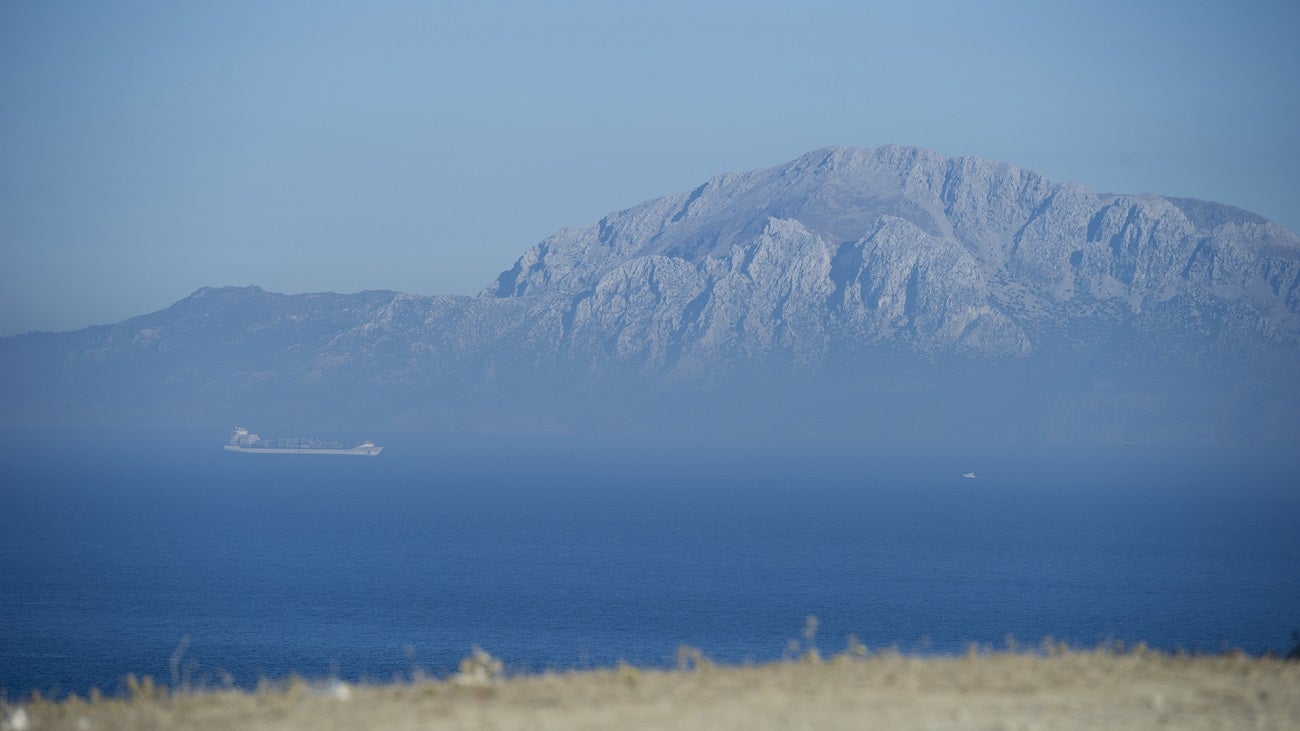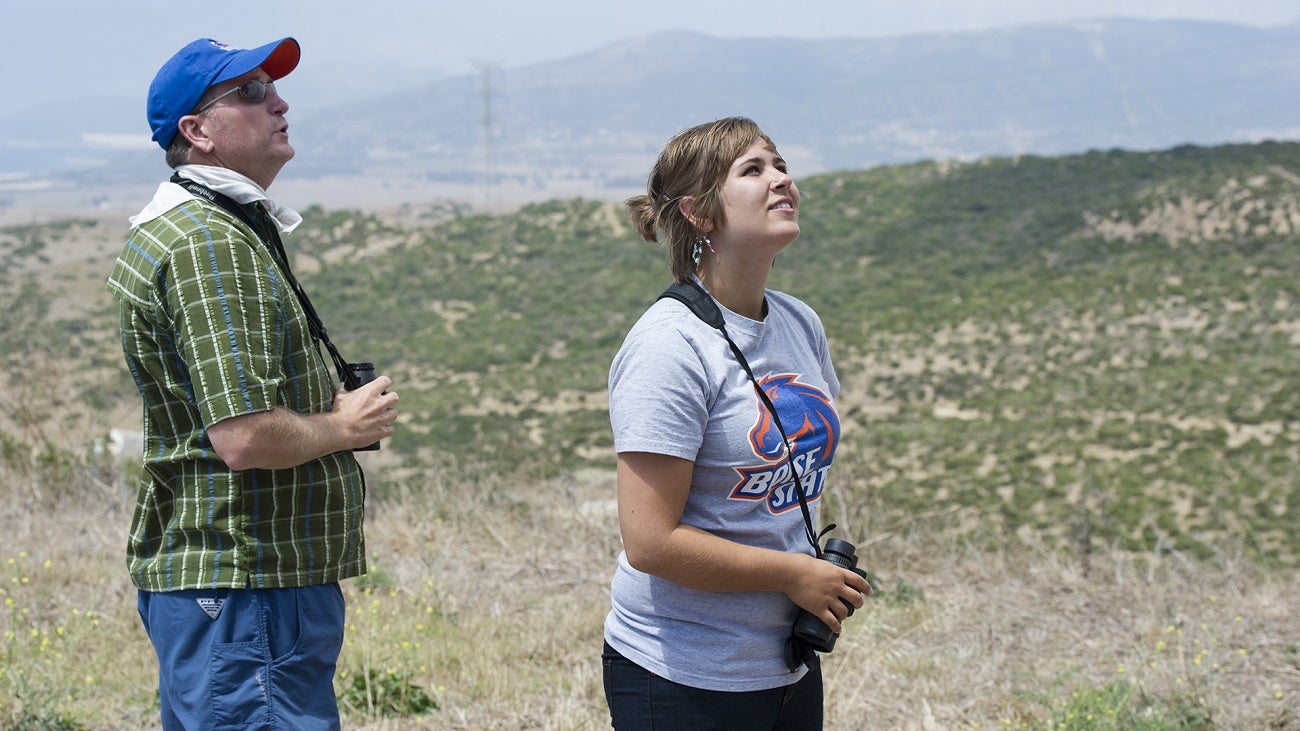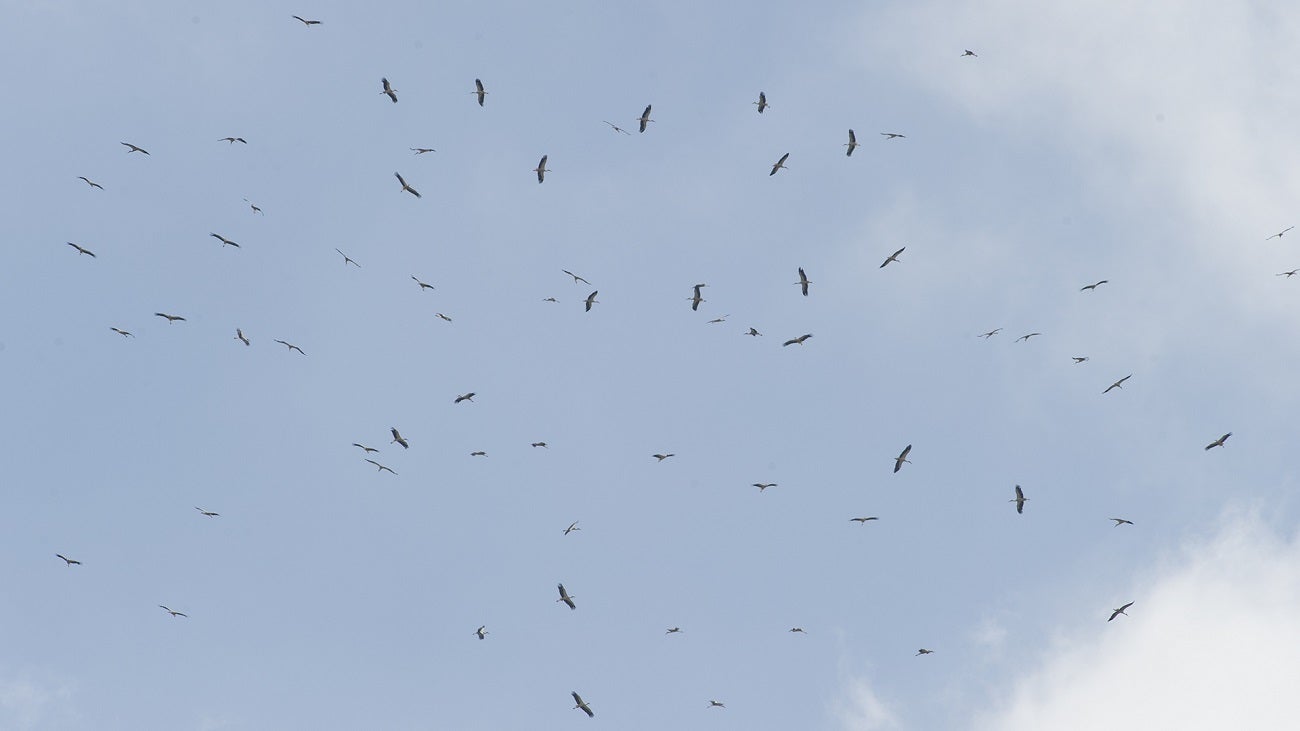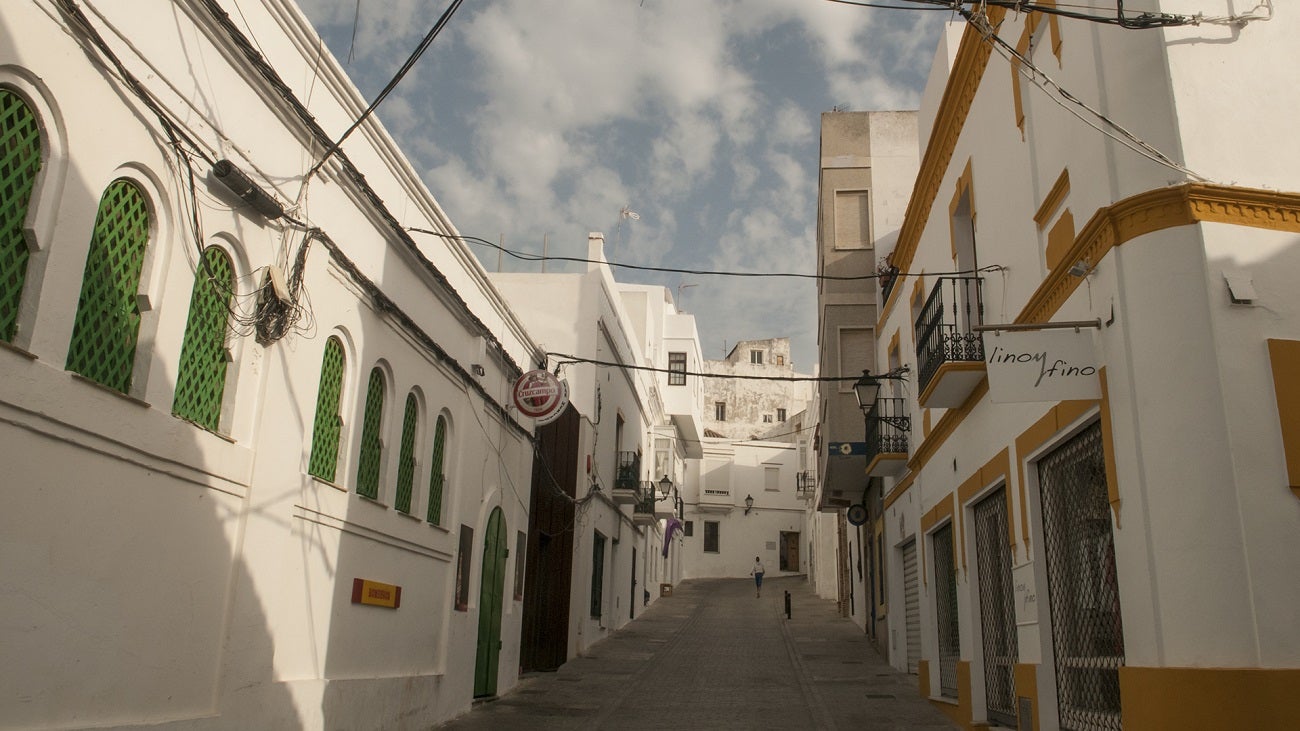RRC News and Recent Work
Feature: Boise State Awarded NSF Grant for International Research on Raptors

Boise State University has been awarded funding from the National Science Foundation (NSF) to support international student research focused on raptors. Project directors Jim Belthoff, Professor in the Department of Biological Sciences and Interim Director of the Raptor Research Center, and Intermountain Bird Observatory Director Greg Kaltenecker were awarded $299,997 for their project titled “Understanding Climate, Renewable Energy, and Oceanic Condition Effects on International Connections of Birds of Prey” to support a new International Research Experiences for Students (IRES) program.
Belthoff, the Principal Investigator on the award, said, “Our IRES project leverages a longstanding partnership among Boise State’s Raptor Research Center, the Intermountain Bird Observatory, and globally recognized Fundación Migres in Spain to collaborate on transformative research to understand effects of a changing climate, oceanographic conditions, wind dynamics, and renewable energy on migratory raptors and other large soaring birds that are especially affected.” The IRES program at NSF is in part designed to invest in undergraduate and graduate students to develop a diverse, globally competitive STEM workforce and to increase partnerships between academia, industry, and others.

Research Focus
The collaborative research focuses on changing climatic, ocean temperatures, and wind patterns that influence intercontinental movements of migratory birds. The Strait of Gibraltar (southern Spain) is recognized as an important area for soaring bird migration, with an open water crossing distance of only 11 km between continental Europe and North Africa. Hence, the region acts as an obligatory crossing point for the majority of soaring birds migrating from Western Europe to Africa.
As the climate continues to change, resulting in warmer air temperatures, changing ocean currents, and altered ocean salinity, winds in southern Spain that are less favorable for migration are forecasted to increase and significantly reduce the number of days during the migration period favorable for crossing. Simultaneously, renewable energies including wind and solar, have rapidly developed in the region. These energy technologies do not contribute to the factors altering climate, but they present well-recognized collision risks to large raptors. These climate and energy factors interact to affect raptors and other large soaring birds in the region, and that is the focus of the IRES research.

“We are excited about this addition to our portfolio of raptor research at Boise State because it complements our REU [Research Experiences for Undergraduates] programs, but it will broaden participation by Boise State students in international research that is globally relevant,” said Belthoff. “Our partnership with colleagues at Migres has supported numerous Boise State interns in the past, but we can now support a larger number in a more formal way through our IRES program,” adds Kaltenecker.

Program Details
The funding supports international research experiences in southern Spain for five students each year for three years. Participation includes a spring seminar course, a paid eight-week summer research experience in Spain, and presenting research findings at professional conferences. Interested individuals can visit the Raptor Research Center IRES-RR website for updates.
See more photos of the Tarifa, Spain area and raptor research in the Boise State News release of this story.